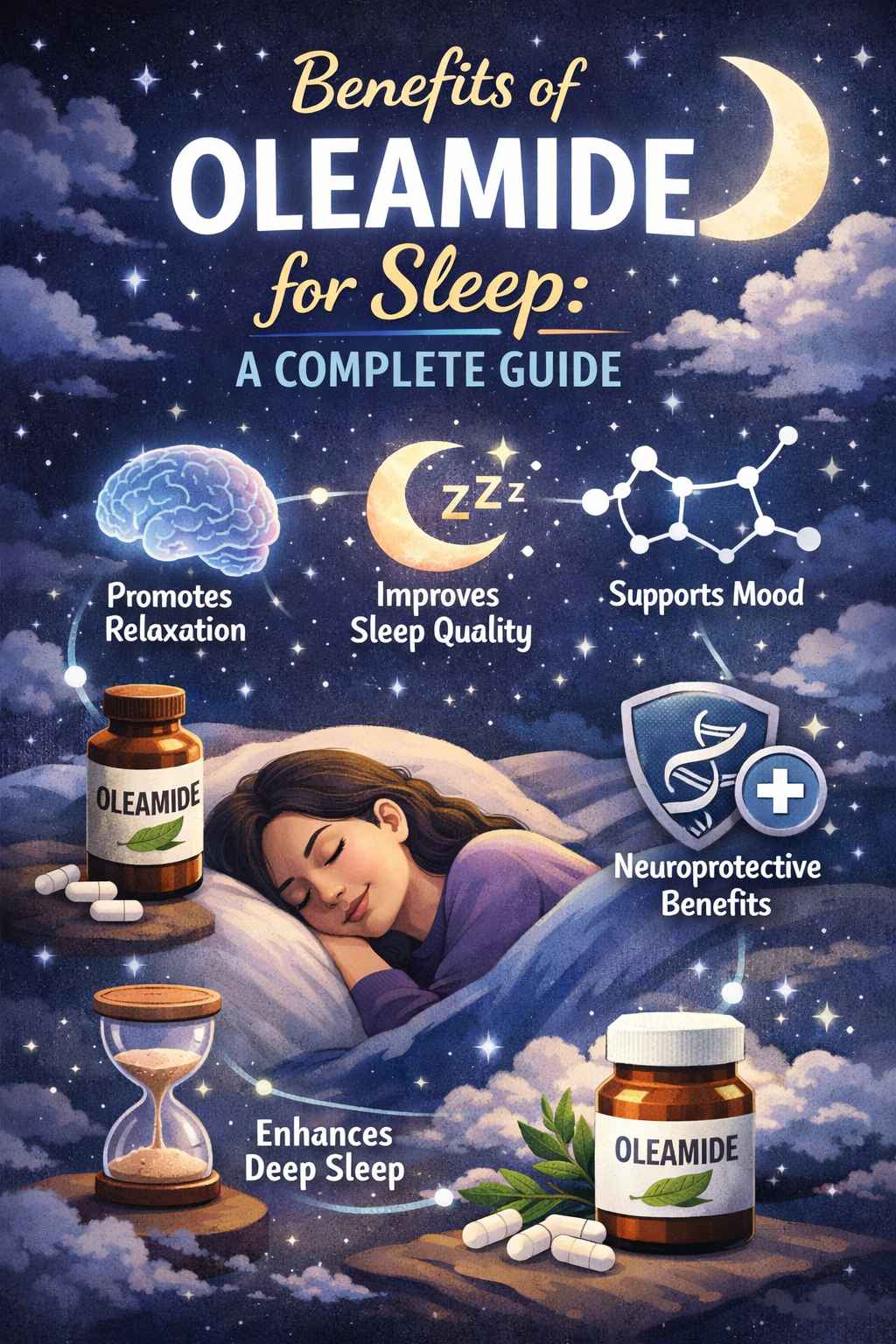Introduction: Why People Turn To Theanine For Sleep
Many people reach a point where the nightly ritual of tossing and turning feels less like rest and more like a second job. In that quiet space between wakefulness and sleep, theanine for sleep has become a frequent topic of conversation—especially among those who want natural support rather than prescription sedatives.
L-theanine is an amino acid most known from green tea, and it has a gentle but distinct effect on the mind: it calms without numbing without numbing. That makes theanine for sleep appealing if you struggle to get to sleep, stay asleep, or wake feeling restored, yet still want to think clearly during the day.
At SLP1, theanine is one of the core tools woven into systems like “Reclaim Your Sleep: The SLP1 Protocol for Moms to Win Their Sleep Back.” Understanding how it works—scientifically and practically—can help you decide whether theanine for sleep belongs in your evening ritual.
What Is L-Theanine?

L-theanine is a non-protein amino acid naturally found in the leaves of Camellia sinensis, the plant behind green, black, white, and oolong tea. It also appears in a few mushrooms, but tea is by far the main dietary source.
A few key points about L-theanine:
-
It is water-soluble and absorbed into the bloodstream in about 30–40 minutes.
-
L-theanine crosses the blood–brain barrier, so it can directly influence brain chemistry.
-
In tea, it accounts for roughly 25–60 mg per cup, depending on the variety and steeping time.
-
It contributes to the smooth, umami taste of green and black tea and helps soften caffeine’s sharp edges.
Unlike most amino acids, L-theanine is not used to build proteins. Its role is more subtle: it interacts with neurotransmitters and brain waves, gently shifting your state from wired to relaxed. That’s why theanine for sleep is most often discussed in the context of mental calm rather than physical sedation.
For a deeper dive into mechanisms and studies, SLP1’s overview, the science, walks through the evidence that first put theanine on the map as a sleep-support nutrient.
How Theanine For Sleep Works In The Brain
Neurotransmitters And Stress Chemistry
To understand theanine for sleep, it helps to picture sleep not as an on/off switch but as a balance of signals in the brain. L-theanine nudges that balance toward ease in several ways:
-
Glutamate regulation: L-theanine closely resembles glutamate, the brain’s main excitatory (wake-promoting) neurotransmitter. It can occupy certain glutamate receptors without activating them fully, which helps dampen excessive “go, go, go” signaling.
-
GABA support: It increases gamma-aminobutyric acid (GABA), the primary inhibitory neurotransmitter. GABA slows brain activity and is the same system targeted by many prescription sleep medicines, but theanine appears to influence it more gently.
-
Dopamine and serotonin: Studies suggest theanine raises levels of these mood-related neurotransmitters, which can ease tension and quiet intrusive thoughts at bedtime.
-
Norepinephrine reduction: Theanine may lower this stress-related neurotransmitter, helping to soften the physical edge of anxiety—racing heart, tight muscles, a sense of being “on alert.”
-
Melatonin: Some research, highlighted in the science, indicates that L-theanine can increase melatonin levels, supporting the natural sleep–wake rhythm.
Together, these changes help explain why theanine for sleep often feels like a smoother transition into the night rather than a forced blackout.
Brain Waves And The Relaxation Response

Theanine doesn’t just change brain chemistry; it also shifts brain electrical activity:
-
Alpha waves: Human studies using doses from 50–200 mg show that L-theanine reliably increases alpha brain waves. Alpha waves are seen when you are awake but deeply relaxed—similar to meditation or that peaceful window right before you drift off.
-
Delta waves (deep sleep): In animal models, especially where theanine is combined with magnesium, there is an increase in slow delta waves, which dominate deep non-REM sleep. This deep stage is where physical repair, immune support, and memory consolidation are most active.
These findings suggest that theanine for sleep can help you enter a calm, receptive state before bed and may support the depth of later sleep stages, particularly when paired with other nutrients.
What The Research Says About Theanine For Sleep

Subjective Versus Measurable Sleep Changes
A large systematic review and meta-analysis looked at 19 randomized controlled trials involving 897 people who used L-theanine for sleep, stress, or both. The pattern that emerged is subtle but important:
-
Subjective improvements (how people feel):
-
Shorter time to fall asleep, according to self-report.
-
Better perceived sleep quality.
-
Less daytime fatigue and dysfunction.
-
-
Objective measures (what the machines see):
-
Little to no consistent change in total sleep time, sleep efficiency, or wake time after sleep onset on polysomnography or actigraphy.
-
This suggests that while theanine for sleep may not completely change your sleep architecture on a lab report, it often changes your lived experience of the night—how quickly you feel you get to sleep, how peaceful that sleep feels, and how you function the next day.
“From a clinical point of view, a person’s sense of restfulness often matters just as much as the numbers on a sleep study.” — Common teaching in behavioral sleep medicine
Effects In Specific Groups
Research becomes even more interesting when we look at higher-risk groups:
-
Children with ADHD: In one placebo-controlled study, boys aged 8–12 with ADHD who took 400 mg of L-theanine daily showed improved objective sleep efficiency and less restlessness at night.
-
Generalized anxiety disorder (GAD): Adults with GAD often reported better satisfaction with their sleep when taking L-theanine, especially those who did not meet criteria for full insomnia.
-
Major depressive disorder and schizophrenia: Several trials found better sleep quality ratings in participants with these conditions after eight weeks of theanine supplementation.
Taken together, the data paint theanine for sleep as a gentle tool that shines when anxiety, mental overactivity, or stress-related patterns are at the heart of poor rest.
For a more technical summary of these trials, you can explore the science behind theanine and other ingredients used in SLP1 formulations.
Comparing Theanine For Sleep With Other Sleep Aids
Theanine, Melatonin, Glycine, And Reishi Mushroom

Many people don’t use theanine for sleep in isolation. They pair it with other nutrients to cover different aspects of the sleep experience:
-
Theanine
-
Calms the mind without heavy sedation.
-
Supports GABA, dopamine, serotonin, and melatonin.
-
Can help you get to sleep and remain peaceful through the night.
-
-
Melatonin nasal spray
-
Melatonin is the hormone that signals “nighttime” to your body.
-
As described in “Melatonin Nasal Spray: A Comprehensive Guide,” nasal delivery leads to rapid absorption, which can be especially helpful for irregular schedules or jet lag.
-
Pairing melatonin with theanine for sleep may support both circadian timing and subjective calm.
-
-
Glycine
-
An amino acid that cools the body slightly and supports deep sleep.
-
“Glycine For Sleep: A Comprehensive Guide” discusses how glycine can shorten sleep-onset time and improve sleep satisfaction.
-
When combined with theanine, many people report smoother transitions into deeper sleep.
-
-
Reishi mushroom
-
A calming mushroom long used in traditional medicine.
-
“Reishi Mushroom For Sleep: A Practical Guide” describes its potential to soften stress responses and reduce sleep latency.
-
Reishi paired with theanine for sleep can be particularly helpful when the nervous system feels chronically overdriven.
-
Each of these tools touches a different part of the sleep system: timing, body temperature, stress chemistry, or mental quiet. The art is in combining them thoughtfully rather than reaching for everything at once.
Where The SLP1 Protocol Fits In
SLP1 brings these elements together in structured systems such as “Reclaim Your Sleep: The SLP1 Protocol for Moms to Win Their Sleep Back.” Within this protocol:
-
Theanine often serves as the foundation for mental calm.
-
Glycine and reishi may be added to deepen rest.
-
Melatonin nasal spray is reserved for when circadian timing clearly needs support.
This kind of framework is especially supportive for mothers and busy professionals who want theanine for sleep to be part of a coherent plan, not just another pill on the nightstand.
How To Take Theanine For Sleep
Supplements Versus Tea
You can increase intake of theanine for sleep in two primary ways:
-
Tea
-
A cup of green or black tea typically provides 25–60 mg of L-theanine.
-
The catch is caffeine: evening tea, especially if caffeinated, can cancel out the calming effects for sensitive people.
-
Decaffeinated green tea preserves more of theanine’s benefits while reducing stimulation.
-
-
Supplements
-
Capsules, tablets, or powders deliver more precise amounts.
-
Common standalone doses for theanine for sleep are 100–400 mg per day.
-
Many comprehensive sleep formulas, including SLP1 options like get to sleep and deeper sleep, pair theanine with other supportive nutrients.
-
Tea can be a pleasant ritual; supplements are usually needed when you want research-level dosages without large amounts of caffeine.
Timing, Dosage, And Combinations
Guidelines drawn from clinical trials and the science suggest:
-
Typical dosage for sleep support
-
200 mg about 30–60 minutes before bed is a common starting point.
-
For stress and anxiety, many studies use 200–400 mg per day, sometimes split between day and evening.
-
-
Timing
-
Take theanine for sleep in the early part of your wind-down routine so you feel the gradual calming as you approach bedtime.
-
If daytime stress is high, a smaller dose earlier in the day plus a larger dose at night may be helpful.
-
-
Combinations of interest
-
Magnesium–L-theanine complexes: Animal studies of magnesium-bound theanine found greater increases in GABA, serotonin, melatonin, and deep delta brain waves compared with theanine alone.
-
Theanine plus GABA: In mice, this pairing shortened the time to fall asleep and lengthened total sleep time more than either nutrient used individually.
-
Theanine with glycine, reishi, or melatonin nasal spray: Each of these combinations is explored in SLP1 resources like “Glycine For Sleep: A Comprehensive Guide,” “Reishi Mushroom For Sleep: A Practical Guide,” and “Melatonin Nasal Spray: A Comprehensive Guide.”
-
Start on the lower end of the range, notice how your body and mind respond over one to two weeks, and adjust in conversation with a healthcare professional if needed.
Safety, Side Effects, And Interactions
General Tolerability
L-theanine has been given “Generally Recognized As Safe” (GRAS) status by the FDA at doses up to 250 mg per serving. Across clinical studies, theanine for sleep has been well-tolerated.
Reported side effects, when they do occur, are usually mild:
-
Headache or migraine
-
Temporary drowsiness or lightheadedness
-
Mild gastrointestinal upset or nausea
-
Irritability in a small number of people
These effects are often short-lived and may ease by lowering the dose or taking theanine with a small snack.
If you prefer a gentler approach and want to get to sleep without heavy sedatives, theanine’s safety profile is one of its main strengths.
“With most supplements, more is not always better; the right dose is the smallest amount that gives a clear benefit.” — Common guidance from integrative clinicians
Special Populations And Medications
Some groups should be more cautious with theanine for sleep:
-
Pregnancy and breastfeeding
-
There is not enough high-quality data on theanine supplements in these groups.
-
Tea itself also contains caffeine, which should be limited during pregnancy.
-
Always discuss with your healthcare provider before using concentrated supplements.
-
-
Children and teens
-
A few small trials (such as in boys with ADHD) suggest potential benefits, but dosing should be personalized by a pediatrician.
-
-
Blood pressure medications
-
Theanine can modestly lower blood pressure, so it may intensify the effect of antihypertensive drugs.
-
-
Stimulant medications
-
Caffeinated tea containing theanine should be used carefully with other stimulants, as caffeine can raise heart rate and blood pressure.
-
-
Other medications affected by tea
-
Tea (rather than pure theanine) may interact with:
-
Anti-seizure drugs
-
Asthma medications
-
Some antidepressants
-
Anticoagulant (blood thinning) medications
-
-
If you take prescription drugs and want to use theanine for sleep, especially in combination with tea or complex sleep formulas, a brief conversation with your clinician is wise.
Theanine For Sleep, Stress, And The Busy Mind
For many people, the core problem is not just sleep and stress—it is stress that refuses to clock out. This is where theanine for sleep shows its deeper value.
By raising GABA, dopamine, and serotonin while moderating norepinephrine and cortisol, theanine tends to:
-
Reduce the sense of internal “noise” at night.
-
Lower heart rate and certain stress biomarkers in response to acute challenges.
-
Support a state of relaxed wakefulness that can flow more naturally into sleep.
These features explain why theanine plays a role in SLP1 systems for parents and professionals whose minds stay in “problem-solving mode” long after the day ends. When your nervous system is dialed down, it becomes easier to move from simple drowsiness into truly deeper sleep.
Protocols like “Reclaim Your Sleep: The SLP1 Protocol for Moms to Win Their Sleep Back” often combine theanine for sleep with gentle lifestyle shifts—consistent bedtimes, light exposure management, and realistic boundaries around screens and late-night work.
“Stress and sleep are deeply linked: poor sleep increases stress, and higher stress makes sleep harder.” — Common theme in public health sleep education
Building A Gentle Sleep Routine With Theanine

The most meaningful benefits of theanine for sleep usually emerge when it is part of a broader evening practice rather than a last-minute fix. Consider the following framework:
-
Set your dose and form
-
Start with 100–200 mg of L-theanine about 30–60 minutes before bed.
-
Choose a format that fits your routine—capsule, powder, or a comprehensive formula such as SLP1’s get to sleep for falling asleep, or deeper sleep if staying asleep is your main struggle.
-
-
Pair it with calming allies
-
Add glycine, as outlined in “Glycine For Sleep: A Comprehensive Guide,” if you tend to feel hot, restless, or wake frequently.
-
Consider reishi mushroom, as described in “Reishi Mushroom For Sleep: A Practical Guide,” if stress and overthinking are constant themes.
-
If your schedule or travel throws off your internal clock, “Melatonin Nasal Spray: A Comprehensive Guide” explains how rapid-acting melatonin can be paired with theanine for sleep.
-
-
Create a predictable wind-down
-
Dim lights, minimize stimulating screens, and choose calm activities (reading, stretching, journaling).
-
This gives theanine’s effect on alpha brain waves room to unfold.
-
-
Observe and adjust
-
Keep a simple log of when you take theanine for sleep, how long it takes you to get to sleep, how often you wake, and how you feel the next day.
-
Use these observations to fine-tune dosage or timing, in conversation with a clinician if you have complex health conditions.
-
“Think of your evening routine as landing a plane, not slamming on the brakes.” — A common analogy used by sleep coaches
Resources like the the science page can help you connect your personal observations with what research has shown in controlled settings.
Clearing Up Common Misconceptions About Theanine For Sleep
Because it sits somewhere between a tea compound and a supplement, several myths surround theanine for sleep:
-
“Theanine will make me groggy the next day.”
L-theanine is not a sedative. At typical doses, it promotes relaxation without heavy next-morning fog. Many people feel calmer yet alert. -
“It should work instantly or not at all.”
Some notice benefits the first night. Others need days or weeks of consistent use for anxiety and stress levels to shift enough that sleep improves. Protocols such as “Reclaim Your Sleep: The SLP1 Protocol for Moms to Win Their Sleep Back” emphasize this gradual, steady approach. -
“Because it’s natural, the dose doesn’t matter.”
Even safe nutrients have effective ranges. Overdoing theanine for sleep may increase the risk of headache or digestive upset. Evidence summarized in the science and other reviews supports staying mostly in the 100–400 mg per day range for adults, unless otherwise guided by a clinician. -
“Theanine alone fixes all sleep problems.”
Theanine can be very helpful, especially when stress and racing thoughts dominate. But if pain, sleep apnea, restless legs, or medication effects are at play, theanine is just one piece. Combining it with tools such as glycine, reishi, or melatonin nasal spray—each described in SLP1’s guides—often works better. -
“Only people with chronic insomnia benefit.”
Even those who generally sleep “well enough” can benefit from a calmer transition into night or fewer nights lost to stress. Theanine for sleep can be viewed as support for the whole span of rest, not only for those in crisis.
Understanding these nuances makes it easier to use theanine with clear expectations rather than disappointment or over-reliance.
Looking Ahead: The Future Of Theanine Research
The current evidence for theanine for sleep is promising, but many questions remain open:
-
Mechanisms in humans: Animal data on deep delta sleep, magnesium–theanine complexes, and combined GABA–theanine formulas are compelling. More human trials are needed to clarify which combinations matter most.
-
Comparisons with other aids: Direct head-to-head studies between theanine, glycine, reishi mushroom, and melatonin nasal spray would help refine protocols like those used by SLP1.
-
Long-term use: Most studies last a few weeks. We still need well-designed research that follows people using theanine for sleep over months or years.
-
Population-specific dosing: Age, sex hormones, psychiatric conditions, and coexisting sleep disorders may all influence who responds best. For example, research focused on postpartum women could help strengthen tools like “Reclaim Your Sleep: The SLP1 Protocol for Moms to Win Their Sleep Back.”
-
Objective versus subjective outcomes: Future trials that blend lab measures with careful tracking of how people feel will deepen our understanding of what matters most in lived experience.
As this work unfolds, we will gain clearer guidance on when theanine for sleep should be a mainstay, when it should be a complement—and when other interventions should take the lead for those who struggle to get to sleep and stay asleep.
Conclusion: Making Thoughtful Use Of Theanine For Sleep
L-theanine sits at a meaningful intersection of science and lived experience. It gently shifts brain chemistry and brain waves toward calm, helps many people get to sleep more easily, and often improves the way sleep feels—even when lab equipment does not show dramatic changes.
Used with intention, theanine for sleep can:
-
Support deeper sleep by easing stress and mental overactivity.
-
Complement nutrients like glycine and reishi, as detailed in “Glycine For Sleep: A Comprehensive Guide” and “Reishi Mushroom For Sleep: A Practical Guide.”
-
Work alongside circadian tools such as melatonin nasal spray, described in “Melatonin Nasal Spray: A Comprehensive Guide.”
-
Fit inside broader approaches like “Reclaim Your Sleep: The SLP1 Protocol for Moms to Win Their Sleep Back,” which acknowledge that the nervous system, hormones, environment, and daily habits all shape the night.
If you are considering theanine for sleep, take a calm, curious approach: review the science, speak with a trusted health professional, start low, and watch how your body responds over time. In doing so, you create the conditions for sleep to return not as a battle, but as a natural, nightly conversation between a quieter mind and a body finally allowed to rest.



Leave a comment
This site is protected by hCaptcha and the hCaptcha Privacy Policy and Terms of Service apply.